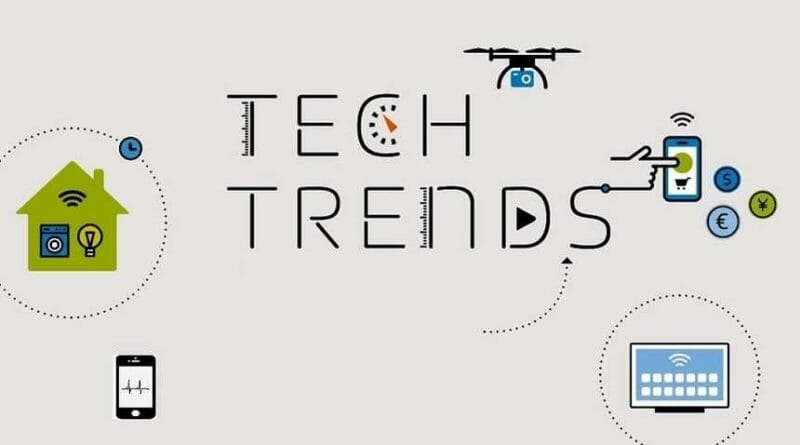Tech Trends that Will Influence Education in 2021
Technology is advancing from day to day, changing our lives in the nick of time. There is no denying that the appearance of the internet and various devices changed the way we learn forever. Let’s look at the most significant EdTech trends that will transform education in 2021.
Internet of Things (IoT)
Internet of Things, which is the term to define physical items connected to the world wide web or among themselves, is expected to replace traditional chalk, blackboard, and pencils in a classroom. Nowadays, a mere smartphone having an internet connection contains tons of e-books and other information that can be found online. The same device can also be a means of communication, for example, between a student and a professor.
Futuristic technology solutions are represented by interactive displays (for instance, Promethean), learning environments (Blackboard), and campus tools such as Magicard, among others.
Artificial Intelligence (AI) and Machine Learning (ML)
Artificial Intelligence can easily be integrated into the sphere of education to transform some of its components, for example, testing and grading. Automated algorithms can save time by checking the assignments faster than a human would. Examples of existing AI-driven tools for education are plagiarism checkers used by educational institutions, AI Writing Assistant products, writing apps and platforms such as custom dissertation writing service. While it is technically impossible for a teacher to detect plagiarized text in numerous assignments, their role will still be important in personalizing the test results. However, artificial intelligence advancement promises to focus on the customization of education too.
What is more, AI solutions can be used to identify the main problems and obstacles students face while learning, systemize them, and help improve the education system. Nowadays, customization is one of the most important educational trends, and this is where machine-learning solutions will save time and improve the efficiency of education.
It is also worth mentioning that a lot of educational platforms that already exist and operate successfully are AI-driven.
Blockchain
Blockchain is mostly known for its applications in areas of financial transactions, user identification, or the creation of cybersecurity solutions. In the education sector, this technology can be used to issue diplomas. Credentials stored on a blockchain represent a more viable and ecological alternative as compared to a paper copy of a diploma. This is also a time-saving solution as one can simply send a link of their diploma to their potential employer. In addition, digital blockchain-based documents prevent candidates from submitting fake degrees. In fact, one of the best STEM schools, Massachusetts Institute of Technology, already provides virtual credentials to its alumni.
Big Data
More and more principals and educators are looking to use big data and data analytics to gain insights into how their institutions operate. In many US schools, big data is used to organize school life, for various tasks from classrooms’ cleaning to planning bus routes.
According to a study conducted by the Center for Digital Education among higher education professors, the main benefit of big data analysis in education would be the monitoring and prediction of a student’s performance (69%), increase in the graduation rate (61%), and real-time adjustment of school curricula (47%). 44% also consider Big Data to be an essential tool for measuring the institutional performance of the establishment. 22% believe that regular scans can uncover possible flaws in the administration.
There are many tools and software dedicated to education today to automate big data analysis. For example, such tools are used to estimate a school’s performance against previously set objectives, whether they relate to academic results or the level of discipline. They also help to be alerted when a particular student is progressing slower than others. In this way, big data contributes to the trend of the individualization of education as well. In the past, the main significative that a student is failing was a drop in exam results. Today, through continuous analysis of individual student data, it is possible to provide more personalized learning for everyone, taking into account individual interests, personal knowledge, and intellectual abilities.
Robotics
The production of automated machines and software agents capable of performing complex tasks and interacting with humans autonomously, is growing rapidly. In education, robots and artificial intelligence applications are helping to design more flexible teaching and learning systems. For instance, robotics and artificial intelligence can make everyday life easier for students with physical, sensory, or mental disabilities.
“Smart” personal assistants (such as Apple’s Siri, available in all models of the brand’s devices) can help accomplish many tasks by voice command from a smartphone or tablet, which is useful for people who have trouble seeing the screen or typing. Robotics can also enhance digital literacy in the future. We can even consider robots as a new medium with personal assistants and other automated computer agents (bots), allowing us to communicate and obtain information.
3D Printing
3D printing helps to put theory into practice by creating objects adapted to each subject and topic under consideration. Printed objects can be used for the demonstration of complex issues in chemistry, physics, and biology. Indeed, it is much easier to study a human body’s structure with a printed model of a skeleton. Students can also implement different personal projects using 3D printers, such as architectural models, design items, and various prototypes.
About Author: Jonathan Brown is a part-time teacher and a custom writing professional. He enjoys doing research and teaching young students. He breaks down complex concepts into simple lessons they can easily understand and remember better.

